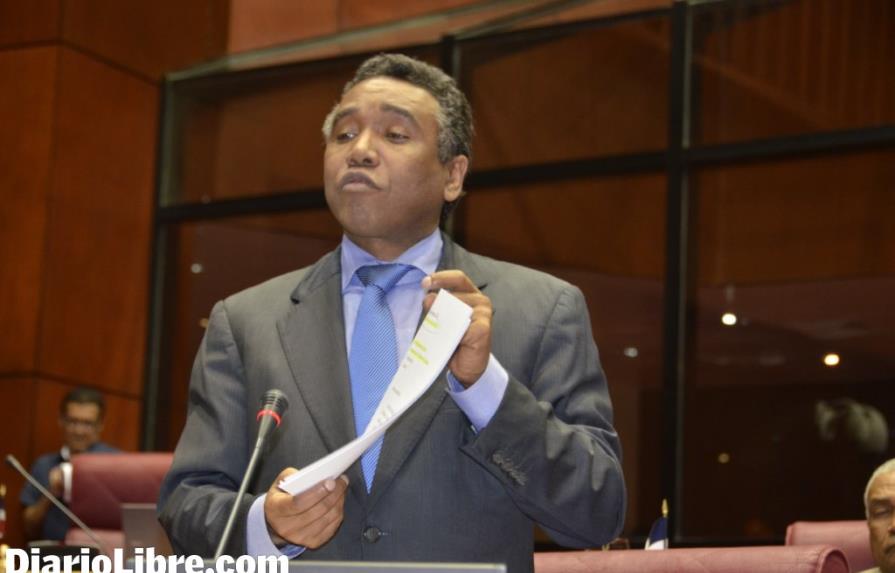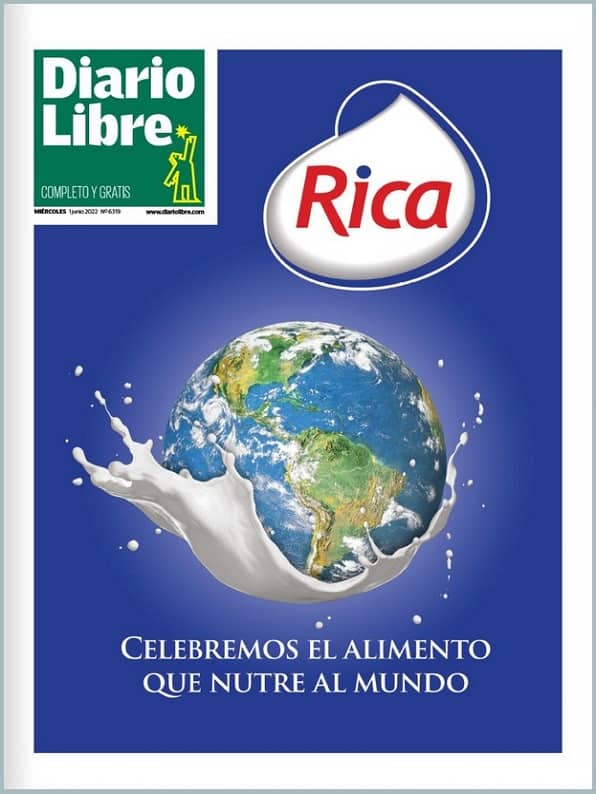Attorney General says investigation of Felix Bautista is regarding corruption and money-laundering
He says there is the possibility of forfeiture

SANTO DOMINGO. The Attorney General of the Republic, Francisco Dominguez Brito, said that Senator Felix Bautista developed a wide circuit, in order to supposedly try to hide the assets and give the appearance of legality to assets obtained with money of doubtful origin.
He alerted reporters to the fact that the warning notes (embargoes) against the property assets are intended to put into the public's knowledge, in a general sense, that as a consequence of an investigative process for alleged corruption and money laundering, there exists the possibility that these properties could be affected, "even seized in their totality, by a definitive sentence handed down by a jurisdictional authority as a consequence of this process."
He stated that as a result of his appointment as director of the Office of Supervising Engineers of State Projects (OISOE), Bautista has managed to develop a complex corporate and engineering financial network, "in order to hide and disguise a sumptuous patrimony, which has been placed and covered up, in part in the Dominican economy, by means of opening bank accounts with millions, as well as through the acquisition and development of luxurious goods and properties."
Dominguez Brito says that this has permitted him to maintain a level of expenditures far superior to what he could incur with the legal income of the public function in which he was employed. In a file of 51 pages deposited before the judge of Special Instruction of the Supreme Court of Justice, Frank Soto, the Attorney General explained the basis, in fact and in law, as well as the elements of proof that sustain his conclusions of why the request for the lifting of the embargoes should be rejected. He details that according to what the investigation shows, the business name of Inmobiliaria Rofi, S.R.L., is one of more than 40 companies allegedly used by Bautista, "directly in order to give him a platform that would permit him to hide and disguise an ostentatious patrimony of doubtful origin, obtained while he worked as the director of the Office of Supervising Engineers of State Projects (OISOE)." "Proof of this is that through this business name, the same as other business names that are controlled by him, bank accounts were opened and in which millions were deposited, precisely during the period of reference."
The Attorney General feels that through the Inmobiliaria Rofi they have acquired properties worth millions, and developed housing projects "that have no relation with the tiny authorized capital which they themselves have reported." He argues that the notes of warning (embargoes) are intended to be a publicity measure, which informs all third parties interested in the existence of an investigation regarding the legitimacy or not of the assets.
"All this so that no buyer of these properties can, in the future, allege ignorance of the investigative process." He suggests that the Justice Department has an investigation underway against Bautista and several persons related to the legislator. He alleges that during the preliminary investigations it was observed that the legislator, presumably having the active participation of some of his closest collaborators, such as Bolivar Antonio Ventura Rodriguez, José Elias Hernandez Garcia, Soraida Antonia Abreu Martinez, Carlos Manuel Ozoria Martinez, Gricel Araceli Soler Pimentel, Bienvenido Apolinar Breton Medina, among others, "developed a wide circuit, in order to try to hide and give the appearance of legitimacy to assets obtained with money of doubtful origins."
Powers
Dominguez Brito defended his legal power to impose the warning notes (embargoes) on property assets of companies tied to Bautista, arguing that the investigation is being carried out because of the possible occurrence of illegal acts a suppose a corruption and money laundering, among others of a criminal nature, allegedly committed as soon as Bautista was employed as the director of the OISOE from August 2004 until 16 August 2010.


 Federico Méndez
Federico Méndez
 Federico Méndez
Federico Méndez